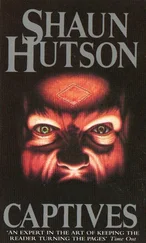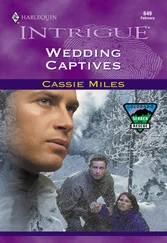Norman Manea - Captives
Здесь есть возможность читать онлайн «Norman Manea - Captives» весь текст электронной книги совершенно бесплатно (целиком полную версию без сокращений). В некоторых случаях можно слушать аудио, скачать через торрент в формате fb2 и присутствует краткое содержание. Год выпуска: 2014, Издательство: New Directions, Жанр: Современная проза, на английском языке. Описание произведения, (предисловие) а так же отзывы посетителей доступны на портале библиотеки ЛибКат.
- Название:Captives
- Автор:
- Издательство:New Directions
- Жанр:
- Год:2014
- ISBN:нет данных
- Рейтинг книги:3 / 5. Голосов: 1
-
Избранное:Добавить в избранное
- Отзывы:
-
Ваша оценка:
- 60
- 1
- 2
- 3
- 4
- 5
Captives: краткое содержание, описание и аннотация
Предлагаем к чтению аннотацию, описание, краткое содержание или предисловие (зависит от того, что написал сам автор книги «Captives»). Если вы не нашли необходимую информацию о книге — напишите в комментариях, мы постараемся отыскать её.
Captives
This is a moving account of a country shaken by communism and anti-Semitism and haunted by recent atrocities, from "a distinguished writer whose vision of totalitarianism is close to Kafka's cloudy menace, universal yet internalized" (Richard Eder,
).
Captives — читать онлайн бесплатно полную книгу (весь текст) целиком
Ниже представлен текст книги, разбитый по страницам. Система сохранения места последней прочитанной страницы, позволяет с удобством читать онлайн бесплатно книгу «Captives», без необходимости каждый раз заново искать на чём Вы остановились. Поставьте закладку, и сможете в любой момент перейти на страницу, на которой закончили чтение.
Интервал:
Закладка:
You can’t lose if you understand. Everything would have been lost if I died: you can’t lose if you hold out, he used to say. You, the girl addressed, should understand, and you shouldn’t lose and you should lose: you should want to lose what you don’t understand, you shouldn’t want to understand, you should forget that you lose, that you leave, that you are climbing the mountains of exile, abandoned, lied to, cast out of the game of lying, without defense. You should forget when and who and what some people say. You should look for other words, objects, hours, habits, and you should tremble once again beneath the resonance of a nearly forgotten word — that thunder — a word from the past, from so long ago that it never existed: you should tremble once again so that the whole thing can begin anew, from the present, from the past, from the past passed in the great sleep.
Those brief, rapid, cunning gestures would have to be forgotten too, and those tenderly paternal movements with their unbearable lightness: the pale hands trembling on the throat, the redness that marked the failed suicide attempt, the duty to start again, despairing and dying all over again, the gestures of refused salvation, of forced rehabilitation, the demented stubbornness to revive him, to punish him, to deny his peace, to force his resurrection, to prepare another death, the same death — his drunkenness and fairy tales and walks and promises: they would all have to be resumed, restarted, reset, without rest and without end.
Looking at the mountains, the orphan girl remembered the Sunday-ness of some mornings on the bridge or at the station, walking with her tender father, that traitor; she saw, once more, the mountains, the narrow hall where Mr. Obreja’s wheelchair rested, the race of spring, the wind blowing through the pines and words — words that were shared with that coward. Among the drifting aromas of long, straight candles, like frozen pine trees in the mountains: there you should forget your hands that once supported the dead man’s heavy body, your burdensome memory of death.
You should forget and memorize everything, ransack the hiding places, undo the knots and rip open the seams, you should understand in order to forget those places where nothing can be recovered, ever; you should forget what you’ve forgotten and what you’ve understood, empty yourself of thought, of the past and the present, look at the unseen mountains, the wooden bed, the madness of spring, the schoolteacher Vasile Obreja’s silences that were as cold as massive graves.
It was necessary to gather memories, to rummage through them, to understand them so they could be forgotten, and then the amnesia would have to be checked again and again, for it would have to cover everything so there’d be no need to cheat or engage in the farce of little passing deceptions. You’d have to understand yourself through the suicidal father, destined to pain like a favorite of the gods. The only way would be to forget him — and yourself — so that you’d climb down the mountain estranged from that former girl, aging now into the past, undermined, reborn — in transient, transpired, transpiring time.
You’d have to understand the one you’d lost — unforgivable, incapable of being forgotten — and then you’d understand your own attempt, and assume it to yourself. Because there was no other way to scrap and forget the alienated girl inside yourself that you hated so much and chased away. By now she was a kind of phantom twin. She clung like a shadow. She caught up with you wherever you went, and then you had to feel her breath rise through your body to your nauseated mouth. You would have to feel her mocking gaze burn into the back of your neck, making you feel like a stupid orphan as she rubbed her transparent palm against the whitewashed wall, lost in the mountains at the end of the world.
• • •
Death sends a servant to test the victim, to prepare her, to rotate her slowly toward the nearby faces of the deceased, to stun her with suppressed hopes, to cloud her vision and obscure her desires, to make her fragile and hollow like something that can be triumphantly lifted up.
You were still a solitary little girl, clumsy and hostile. The sap of your femininity rose slowly, with difficulty, always delayed. Seeing the future, you wrapped yourself thinly with a moistened mouth, with large eyes, and that sheen like a shower of lunar snow. Pale as moonlight, you dressed yourself in a nervous body with sinewy legs, transparent hands, and gestures abruptly broken off. Death’s servant worked on your profile, on your body’s curves with their coiled air, the curves of a sad, wounded feline.
You would have accepted isolation as a redemptive tombstone. Or, conversely, impatiently, furiously, you would have started a war with humility itself, to humiliate yourself as much as possible, embracing humiliation while dreaming of a train corridor: an obese woman professor naively babbling lewd provocations and infantile tales in French into the first stranger’s ear. Fear, disgust, depravity. You would have remained withdrawn, faded and dry, otherwise you would have turned into a mad woman or a whore in order to ruin that fat phantom of life.
You had to remain just one moment on the icy threshold of isolation to understand its torture and its weight. Having taken refuge in fragmented gestures and rapid, frightened spasms, you huddled in the cold, waiting, crouched in silence, in sleep. . to understand and receive the gift of suitable trials.
Death drew your father back so that you could see him, stand before him, shake him, resurrect him, so that you could lose him again, irreversibly. Death returned him: to hurt you, to overwhelm you with pain so completely that you’d forget any other form of suffering. The generous gift of death — suffering, your partner on the bleak mountain — makes you ugly without realizing it, leaves you famished, tired, frozen, mocked, and forgotten. The pain erodes the nights, changes and surprises, sharpens senses and thoughts, and prepares a concealed femininity. The men, all the men on earth, had perished in a violent hell, smiling like beautiful cadavers, and the only man worth protecting had collapsed like an ordinary deserter at your feet, his image eclipsing the sun.
You come down from the cold mountains, disgusted by how easy it is to leave, by your lack of regrets, the absence of any nostalgia, humiliated to have found nothing in the mountains’ indifferent silence other than the silver of water, the darkness of poverty, and the failure of your journey to find tranquility. Somewhere, death waits for your moment of fulfillment.
In the mountains, you passed through the white border under the moon, leaned exhausted against a tree, lifted your gaze toward a branch, and felt a vast, tired astonishment in your new being.
You remained puzzled by what seemed to have happened or was happening to you, without being able to take the next step. You would have to remain a slave of expectations, for years to come, and sometimes still catch glimpses of the nomad’s thin silhouette at the end of the long corridor and the streak of his blue shirt, which marked his passage down the corridor. And that was all, for years and years: the silence of a long corridor cut by a young man’s haste. A colleague, an engineer, that’s all.
. . Lazily the sun rotated its rays in the wheels of Vasile Obreja’s wheelchair. You went on advancing blindly, not knowing where you were going or where you came from. At the burial, Obreja had accepted your pushing him around in his wheelchair, and it was the only time that the schoolteacher had said more than simply good day, yes, no, bon appétit . He asked, “Do you read stories?” — and, before you could respond, he stupidly added — “you should’ve known that babies can’t tame crocodiles, and that some illogical people can be and are despised.”
Читать дальшеИнтервал:
Закладка:
Похожие книги на «Captives»
Представляем Вашему вниманию похожие книги на «Captives» списком для выбора. Мы отобрали схожую по названию и смыслу литературу в надежде предоставить читателям больше вариантов отыскать новые, интересные, ещё непрочитанные произведения.
Обсуждение, отзывы о книге «Captives» и просто собственные мнения читателей. Оставьте ваши комментарии, напишите, что Вы думаете о произведении, его смысле или главных героях. Укажите что конкретно понравилось, а что нет, и почему Вы так считаете.












